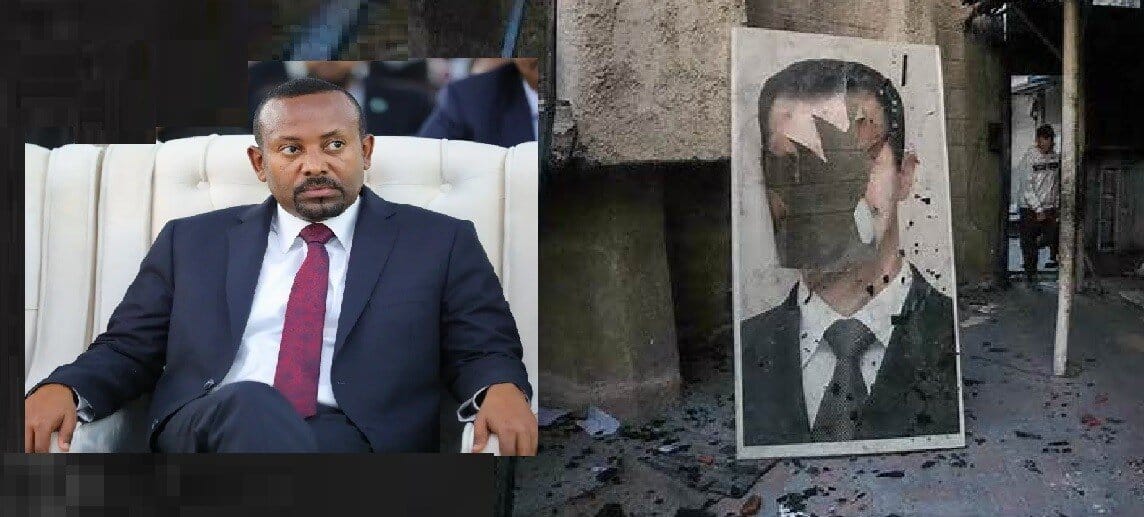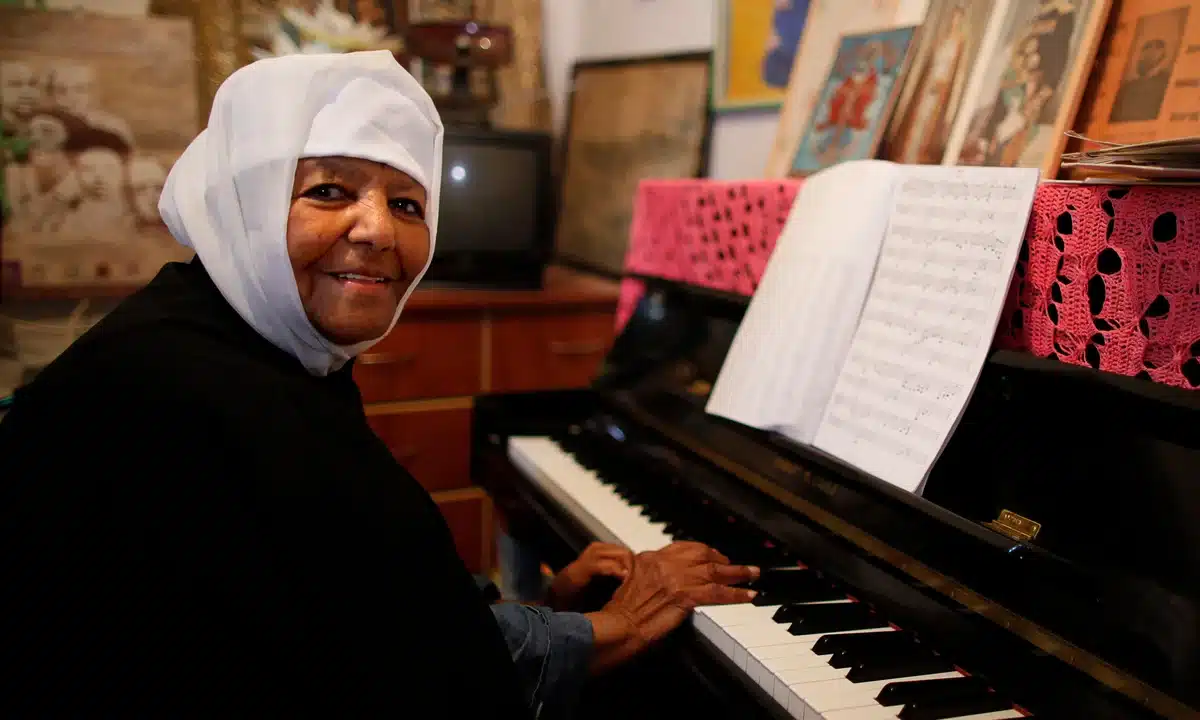by Robele Ababya,
The 18th Congress of Communist Party of China (CPC) opened in Beijing with a keynote speech by its General Secretary (GS) Hu Jintao on 07 November 2012. The GS articulated the stunning achievement in economic growth in the last decade. He vowed continuation of the “construction of socialism with Chinese characteristics “, a phrase frequently used by Chinese officials and scholars.
The CPC is the largest communist party in the world comprising 82.6 million members ruling 1.3 billion people with iron fist. The Congress, comprising 2307 delegates ‘elected’ from within the CPC, met in the Great Hall of People where an imposing portrait of Chairman Mao was conspicuous for its big size. Following deliberations during the period 7 – 14 November 2012 the Congress passed a number of major resolutions involving amendment to the CPC Constitution and replacing most of its affluent top leadership including the GS and the Prime Minister among others.
The power transfer in the one-party system of China was in all fairness a remarkable achievement far beyond the sham transfer within the EPRDF – the diehard custodian of one of the legacies left behind by the late tyrant Zenawi whose party had signed a treaty of friendship with the CPC.
The GS extolled the Scientific Outlook on Development Guidance, based on Marxism-Leninism, Mao Zedong Thought, Deng Xiaoping Theory, is the best achievement of the CPC in the past decade and told leading delegates that the Party must adhere for a long time for it shall be enshrined in the CPC Constitution as part and parcel of the new model for China’s all-inclusive development plan for the next decade.
By the way Prime Minister Deng Xiaoping Theory saved China from catastrophe due to the reckless experiment set into motion by Chairman Mao’s Cultural Revolution. And it is true that his Theory “over the past ten years, has enabled China to advance to the world’s second-largest economy from the sixth place in the world.”
The GS in his speech to leading officials underlined the unprecedented stride in economic growth achieved in the last decade but asking them “to exercise strict self-discipline and strengthen supervision over their families and staff.” He said “Leading officials at all levels, especially high-ranking officials, must readily observe the code of conduct on clean governance and report all important matters” adding that “If we fail to handle this issue well, it could prove fatal to the Party, and even cause the collapse of the Party and the fall of the state”. He made a passionate plea that “the CPC must make unremitting efforts to combat corruption, promote integrity and stay vigilant against degeneration.” He singled out corruption as a major problem in his closing speech also. And the incoming General Secretary Xi Japing strongly underscored the same thing in condemning the rampant corruption.
On the other hand Ethiopia’s PM aggrandized the economic growth of China justifying why it is adopted as a role model for growth by developing nations. He said Ethiopia scored double digit growth in the past nine years ignoring the fact that the IMF and the WB have revised that growth downwards to single digit. He was dead silent on rotten corruption which, by the way, his predecessor did not deny.
I watched on the China Central TV (CCTV) renowned pundits including Western economists arguing and reaching consensus that the average economic growth for China for the period 2010 – 2020 would be 5% to 6%. The pundits noted that the double-digit massive growth in the last three decades brought corresponding mind boggling social problems with it – such as income disparity, social unrest, and rampant corruption. It was argued that the CPC cannot rectify its blunders by itself without check-and-balance in the political system. I thought the several dialogues hosted by CCTV during the proceedings of the CPC Congress are a sure sign of China opening up to the world.
Therefore, the introduction of political pluralism in China is a must in the face of changing economic orientation from dependence on exports to domestic consumption coupled with 6 million degree holding graduates annually flooding the job market seeking employment that the CPC cannot provide without the support of private business enterprises. Add to this the 500 million informed and angry Chinese having access to the internet using the social media to expose rampant corruption and calling for multi-party democracy to change the present ‘vertical democracy’ method of CPC of replacing the affluent top plutocracy in the CPC.
The GS in all fairness deserves high respect for his courage and frankness for so clearly and unequivocally articulating the pervasive corruption within the CPC threatening to bring it down.
I cannot say the same for the EPRDF Prime Minister (PM) who had opted to copycat the Chinese aging model as a role model for Ethiopia and the developing nations. I would quickly add that it is perfectly normal to adapt models of other countries, but only to the extent that they are suitable to one’s strategic objectives and national characteristics. Emulating best practices is laudable.
My argument is that the PM should rather pay serious attention to multiple problems associated with the ongoing political and social crisis on the watch of his Stalinist party, which itself is incurably divided. A splinter group of TPLF has gone underground with determination to lead the government from behind; a second splinter group spearheaded by the senile Sebhat Nega is concocting to resurface the glory days of the all-pervasive TPLF supremacy; the widow of Zenawi controls all the resources of the TPLF in her capacity as the CEO of EFFORT that she grabbed from Sebhat; it is an open secret that the OPDO top brass, purportedly struggling for the right of the their ethnic group, are angry at being denied not even one key ministerial post, which is humiliating to the great Oromo people – the largest ethnic group in Ethiopia. So the PM has a lot to worry about and no wonder that the formation of his Cabinet is inordinately late and the government is in limbo.
Reminiscence
The first time I met Chinese citizens physically in Ethiopia was well before the 1974 Ethiopia Revolution at Massawa on their commercial ship docked at the port of Massawa waiting for thousands of quintals of cargo of sesame from the renowned fertile land called Setite Humera – then part of Gonder/Begemder now merged with Tigray by force as part of the secret scheme of Zenawi to create an independent “Greater Tigray” by grabbing land for the surrounding areas including Wollo.
I am mentioning the above meeting with the Chinese for the following reasons:-
•The Chinese I had met then were reclusive and incommunicative reflecting rigid discipline under the iron rule of Chairman Mao. I and my colleagues were invited to the cabin and made to wait for the party representative for a few minutes silently. There was an eerie quite as the party official joined us. He said welcome and we exchanged salutations. We were treated to a bottle of Chinese beer. He told us why his cargo ship came. He was the only one who spoke. I am saying this to admire the progress the Chinese have made through the years in engaging foreigners including Chinese in discussions and social interactions in my capacity as project manager of major engineering projects at home and abroad in the past 32 years. China opening up to the world is the name of the game now!
•To underline the fact that Ethiopia at that time owned a vibrant Navy established by Emperor Haile Selassie and a harbor and in all fairness expanded and developed to an enviable high standard during His regime and that of the Derg.
•To bring out the fact that Setite Humera was a shining symbol of burgeoning agriculture in Ethiopia producing exportable cash crops on high demand from countries in Europe, America and as far places as China in Asia.
•To remind readers that one of the pernicious legacies of the late Zenawi was to give away the above mentioned vital national assets – the Navy, the harbor, burgeoning agriculture Ethiopia entrepreneurship in the spirit of self-reliance.
The Big question!
Indeed China has become the second global economic powerhouse involving 80% private sector partnership. It is a force in our global village to reckon with in terms of its military might, achievements in advanced science and technology to the extent of sending manned satellite into space – but all this at the expense of engendering draconian social problems including rampant corruption, environmental degradation, and suppressing human rights. President Hu Jintao candidly admitted that rampant corruption threatens to bring down the CPC and the government. Putting people first was underlined by the President as one of top priority tasks for the new leadership.
My big question is, given the worsening injustice and social problems in Ethiopia, why Prime Minister Hailemariam is upbeat about developing nations adopting the Chinese model for economic growth under review for change by the CPC as a priority. Shouldn’t the EPRDF learn from mistakes made by China in the past and design a model for growth that includes democracy and respect for fundamental human rights recognizing it as the foremost priority for the 21st century?
Conclusion
President Hu Jintao’s candid admission that economic growth brought with it rampant corruption and a host of other problems threatening to bring down the CPC and the government is laudably respectable. The CPC in my strong opinion cannot correct its failings in this regard without at least one independent watchdog political rival, less so in view of rising demands for social justice and more freedom of expression. Therefore, in view of rapid progress made to date, one would be inclined to predict that there will be a multi-party political dispensation in China in next 10 years.
The EPRDF PM is well advised to heed President HU Jintao’s speech and design a growth model with Ethiopian characteristics – with due reverence to the 96% of the population believing in God and taking into account the rights of the rest of the 4% minorities including atheists. Government interference with religious affairs has to stop; EPRDF must respect its own constitution to avoid the impending instability in the region due to inordinate crackdown on religion, especially on the Ethiopia ancient Orthodox Tewahido Christian and Muslim faiths.
The PM will have to bring to justice all the corrupt greedy top TPLF leaders including Azeb Mesfin; dismiss all incompetent ones within the entire EPRDF top leaders and make history by establishing his Cabinet dedicated to real change to democratic order, principles and rule of law.
Change is inevitable; the rest of us must expedite it knowing that Ethiopia’s strategic location and the State-sponsored internal division of her people along ethnic and religious lines is making her more vulnerable to the danger of fragmentation.
The name of the game in the 21st century politics is “people come first” or “putting human rights first” for sustainable economic development in a truly democratic society.
Finally, I repeat my call that all political prisoners Andualem, Eskinder, Reeyot et al must be released unconditionally without delay; that all restrictions on freedom of expression are lifted; political parties including MEDREK, AEUP, et al are regarded as partners rather than enemies publicly declared as such by the late tyrant Zenawi.
LONG LIVE ETHIOPIA!!!















